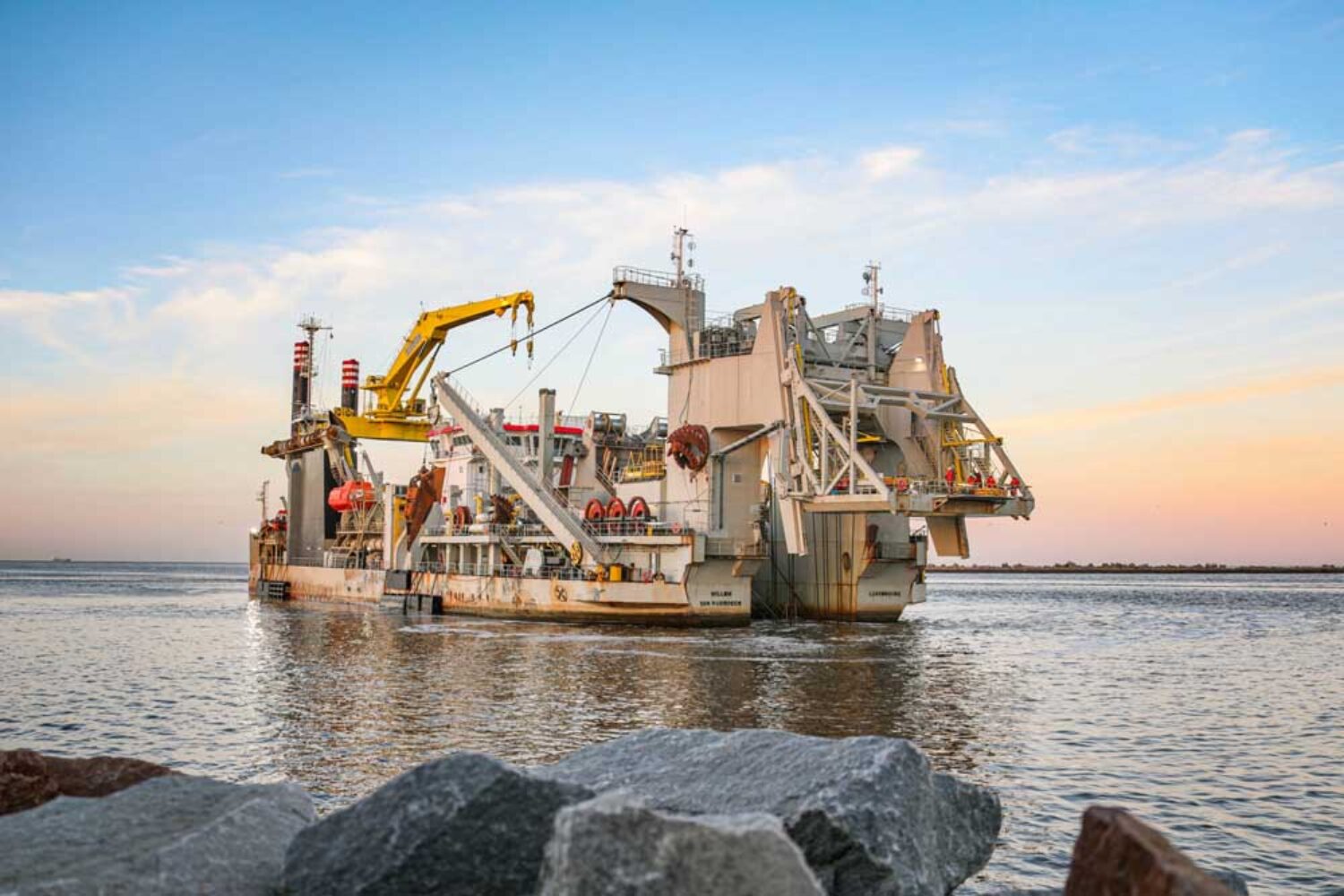A new seaport is being built in Senegal to relieve pressure on the capital Dakar. Work has already begun in Ndayane, 50 km to the south.
In the future, it should be possible to handle two Megamax container ships there at the same time – making the port one of the largest on the west coast of Africa.
According to the logistics company DP World, which operates the port of Dakar, the terminal there is at its capacity limit. A second port will therefore relieve the pressure on the capital and at the same time become an “engine for economic growth in Senegal”, they say. The handling capacity of the West African country will therefore increase significantly.
Jan De Nul uses the strongest dredger
The first step is the dredging of a 5 km long access channel. The Belgian company Jan De Nul has already started the work, which will involve moving around 10 million m3 of earth. “This is no easy task, as the seabed in the channel is mainly hard rock and conditions in the Atlantic can be harsh,” said Dominique Bombaert, Area Manager for Senegal. “You need a powerful dredging vessel that is also large enough to continue working in difficult wave conditions. That’s why we’re using our largest and most powerful dredger, the ‘Willem Van Rubroeck’, to get the job done.”
The dredged material will be used to reclaim an area of 89 hectares from the sea, which will serve as a terminal for the storage of containers and maritime services. The work is expected to take a total of two and a half years.
One of the largest ports in West Africa
Once completed, the port of Ndayane will be able to accommodate two of the largest container ships in the world at the same time, making it one of the largest ports in West Africa. For Senegal, this means economic growth and jobs. According to Jan de Nul, the planning and execution of the work will be carried out with care in order to minimize any negative impact on the environment. For example, a comprehensive environmental impact study has been carried out, which also includes investigations into sensitive areas such as seagrass fields.
Jan De Nul is also working on a new container quay for the port of Valencia, and a new deep-water port in Georgia is in the pipeline. The company is shaping the modernization of ports worldwide. Dominique Bombaert: “Jan De Nul is positioning itself as a world builder, an expert in water, land and energy, with the higher goal of preserving or improving the quality of life of future generations,” continued Bombaert. “Accessible ports that are resilient to the effects of climate change are key to our global economy. With this project, we are making a valuable contribution to global trade.”













